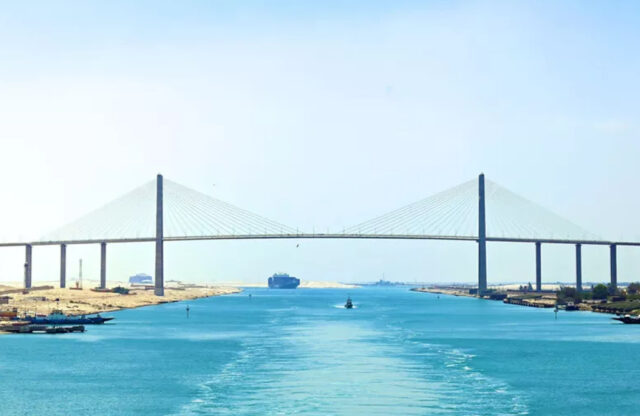The Growing Potential of Forex Trading in Africa
The forex industry in Africa has been growing significantly. It has been estimated that the number of forex traders across the continent ranges from 1.3 to 1.8 million. This growing user base is comparable to those in other parts of the world.
Undoubtedly, the Forex market has always been an attractive place for traders and investors to start and it is due to not one but multiple factors like high liquidity, ease of entry, global nature, high volatility, access to demo accounts and high-profit potential.
But the question is what led to the popularity of the forex market in Africa and whether the forex market in Africa will continue to expand. Let’s find out the answer!
Reasons Behind the Rise of Forex Trading in Africa
- Impact of Coronavirus: In 2020, Covid-19 took hold in the world, including Africa. As there were restrictions on movement, people were confined to their homes. Economies were shut, and there was job insecurity. That’s when people started to look for alternative ways to generate income, preferably from home. Amidst all this chaos, people started to gain interest in forex trading. The primary driving force was the heightened volatility in the markets due to the ongoing pandemic. Additionally, the war in Ukraine has only exacerbated the already volatile market which created a fertile breeding ground for those seeking to profit from the movements in the market, regardless of whether they are positive or negative.
- Access to the Internet and Mobile Phones: The technological landscape of the African continent is rapidly evolving. Smartphones and tablets have become the go-to devices for communication, entertainment, and almost everything, including trading. The increasing accessibility of the internet has only further compounded this trend, with wireless technology enabling countries to rapidly expand their online infrastructure and increase the reach of the digital world. Brokers operating in this space have been quick to capitalise on these developments and have designed their trading platforms to be as mobile-friendly as possible. MT4 and MT5 are prime examples of how easy trading platforms are to use. You can easily place, monitor and exit trades on the move using the mobile version of these trading platforms.
- Africa Can Benefit From Lesser-known Markets: The savvy traders know that being aware of the fundamentals like political climate in the country, economic health and infrastructure development can pay off big time as this can help them make the most out of the price movements. The best part of trading in the lesser-known pairs and currencies is that movements can be much more stark and pronounced, which makes it easier to time the market in many cases.
- Better Financial Education: As the African continent hurtles towards an economically empowered future, there has been a remarkable increase in the financial literacy of its people. Various literacy initiatives and better schooling have played a pivotal role in this regard. There has also been an influx of talent from abroad, contributing a lot towards it. Forex platforms themselves have also played quite a critical role in educating traders by offering a wealth of resources that help them to learn the ropes of the market.
Future of Forex Trading in Africa
Africans, in general, are becoming more active in the forex markets due to the increasing rate of internet penetration and other factors, which indicates that we can expect the trend of forex trading to accelerate in the near future. However, there are people who think that the forex market in Africa has reached its saturation point.
In reality, the market still has massive potential for growth. Currently, the forex market is enjoying stability, which is seen as an excellent foundation for continued growth, but the changing regulatory controls may have an impact on future growth. But certainly, there’s a lot of room for growth in forex activities in Africa.
How New African Traders Can Start Forex Trading?
As we know, forex trading is a financial activity that involves the buying and selling of currencies with the intention of making a profit from fluctuations in currency rates. Therefore, you have to be strategic and know when to make your move and when to hold back. The basic idea is simple: you buy a currency when you expect its value to increase relative to another currency, and you sell it when you anticipate it will decline. The difference between the entry and exit prices determines the profit or loss of your trade.
So, let’s understand how you can start trading forex and what you will need before starting:
Learn About the Markets: Mastering the fundamentals of forex trading is essential to survive and consistently make profits in the market. There are two main approaches to trading, or we can say to speculate the direction of the market: technical analysis and fundamental analysis. Technical analysis involves using chart patterns, candlesticks, moving averages, and other technical tools to identify trading opportunities based on price movements. In contrast, fundamental analysis takes a longer-term approach and relies on macroeconomic indicators such as employment data, retail sales, and interest rates to identify potential trades. To get started with online Forex trading, it’s important that you understand these concepts thoroughly, as well as learn and practice risk management in trading.
Create a Trading Account: In order to place trades in the market, you have to create a trading account with a reliable broker, as only then will you be able to get access to the market. It is one of the most important decisions, and you must take it carefully, as choosing the right or wrong broker will make all the difference in your trading account. Make sure to check the broker’s regulations, terms and conditions, and other important features as you may not want to end up with a fraud company as this may risk your trading capital.
Find a Trading Strategy: The market has so many trading strategies. Scalping, Day Trading, Swing Trading and Position trading are just a few of them. Each strategy has different rules, and you must make sure that it completely suits your trading style because that’s the only way to get the maximum benefits from your trading strategy. In order to have a solid strategy, you must have accurate information of the trades you intend to enter into. For that, trading tools will be of great help, as they help find the right data you need to smartly enter a trade to make profits with a minimum amount of risk. For instance, if you have a day job, you should try scalping, as it demands a lot of time and concentration. Scalping is a short-term strategy where traders have to enter and exit trades within a time frame of a few minutes, which is hardly possible for a person who is busy with their full-time job. So, in this case, you may choose swing or position trading. Therefore, make sure that your strategy suits your trading style.
Choose a Trading Platform: Here comes another important decision. Trading platforms are equipped with charts, indicators and other trading tools that help you monitor and analyse the market. Therefore, you must find a trading platform that is user-friendly, intuitive and responsive. You should also check different order types and other necessary features to ensure that the platform offers everything that you will need during trading. But you should know that your broker should support the trading platform of your choice otherwise, you can’t connect your trading platform with your brokerage platform. Typically, MT4 and MT5 are the most preferred platforms that most traders and brokers love. So you can choose any based on your preference. Most beginners prefer to trade on MT4 due to its simple design and limited features, but you are free to choose any, given that you are comfortable trading on it.
Understand the Risks Involved: Forex trading is prone to numerous risks: market risk, operational risk, risk of ruin, leverage risk, liquidity risk, emotional risk and risk of financial loss. If you want to protect your account from these risks, you must fully understand what they mean and what measures you can take to prevent your account from these losses.
There has been a tremulous shift in Africa’s economic and financial landscape. Access to the internet, increased literacy rates, and political and social turmoil impact are crucial factors in driving this change. As more and more Africans started developing an interest in the forex market, they started investing their time in gaining a deeper understanding of this complex financial world. This has made Africans better equipped to make sound financial decisions and confidently navigate the markets. This development can be seen as a course towards Africans’ brighter and more prosperous future.







